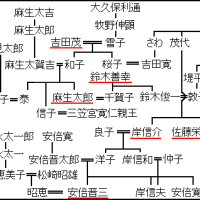Underground resources will surely run out eventually. Everyone knows this.
We need to gradually change our lifestyles that depend on underground resources before that happens, but not right away.
By doing so, a major reason for war will disappear from the earth.
Technology to separate water into hydrogen and oxygen is advancing remarkably, and other methods will be explored in the future.
地下資源はやがて必ず枯渇する。誰もがそのことを知っている。
いますぐにとはいかないが、そうなる前に地下資源に依存する生活様式を少しずつ変えていく必要がある。
そのことにより、戦争が起こる大きな理由が地上から消滅する。
水を水素と酸素に分離する技術が目覚ましく進んでいるし、他の方法も今後模索されるだろう。
The reaction of Joe Biden’s administration to the decision by OPEC and its allies to cut production by two million barrels per day is clear enough to confirm growing tensions with oil producers, particularly Saudi Arabia. Although the decision was widely expected and did not actually have a major impact on oil prices, Washington took it as a clear signal from its Persian Gulf allies that they were not inclined to comply with the US request to increase oil production at the first request. Democrats and Republicans saw it as a sign that the Gulf states were siding with Russia against the US and Western stance on the Western-led war in Ukraine. Western politicians simply do not have a sense of the reality of ongoing events and cannot in any way understand that Arab countries are now eager to secure their own interests and not, like Europe, follow orders from across the ocean.
OPEC officials stress that the decision is purely technical and aimed at maintaining stability in global markets. But since Russian Deputy Prime Minister Alexander Novak attended the OPEC+ meeting in Vienna, Americans have been furious. OPEC+ is an association of OPEC members led by Saudi Arabia and non-OPEC producers led by Russia. So Novak, the Russian energy minister, was obliged to attend the meeting because of his status, and although he is under US sanctions, he is not subject to EU sanctions. OPEC sources told the weekly Al-Ahram that the United States tried to pressure Austria to ban him, but OPEC+ members unanimously threatened to move the organization’s headquarters from there. Regardless of whether a Russian representative was present or not, the meeting should have led to a reduction in production, as demand is expected to decline due to the anticipated global economic downturn. In fact, the supply-demand relationship might have required major cuts as a preventive measure to avoid a glut in the market and a crash in oil prices.
Since the decision was made just over two months after Biden’s meeting with Saudi Crown Prince Mohammed bin Salman Al Saud in Jeddah, some in the United States itself saw it as a failure of the current US administration’s Persian Gulf policy. Aside from the Western-led war in Ukraine and unwarranted economic sanctions against Russia, the ruling Democratic Party is nervous about next month’s midterm congressional elections. High gasoline prices at the pumps are worsening its bleak outlook, as opinion polls suggest Republicans could win a majority in both the House and Senate.
The OPEC + decision curiously coincided with the Jewish Day of Judgment – the anniversary of the 1973 October War, when the Arabs defeated Israel and liberated part of the occupied territories. This has led many Western analysts to compare the current energy crisis to the oil crash of the 1970s, when Arab countries reduced their exports to countries that supported Israel. It was a distinctive situation, but the analogy remained tantalizing and perhaps, Western analysts note, the Arabs can employ the same strategy as in the 1970s.
Immediately after the OPEC + decision, veteran S&P Global Commodity Insight analyst Roger Divan said the cuts represented a “weaponization of oil” and suggested that the timing and location of the meeting was a deliberate signal: “The presence of Russia’s deputy prime minister, who is under US sanctions, and the discussion of tightening oil supplies in the run-up to winter, when Russia has already weaponized its gas exports to Europe, sends a clear signal … Saudi Arabia’s hostile stance will further increase the risk of oil price changes.” This analyst has calculated the consequences of the Arab oil policy and predicts that times are tough for the West.
However, this has not come to pass. And yet, this move may indicate that the policies of Persian Gulf countries have changed, and not in the West’s favor. As Emirati professor, Abdulkhaleq Abdulla told the Financial Times, “Some in Washington do not understand that there is a new Gulf and we no longer take orders from Washington.” Abdulkhaleq’s remark may be a bit of an exaggeration, but the days of Americans automatically getting their way in the Persian Gulf are over. Indeed, new times have dawned, and it is not yet clear whether Joe Biden’s administration and those that follow will be able to establish a “respectful policy” with the Arabs. To all appearances, it is unlikely that Washington will be able to change its foreign policy course, which is determined entirely by the use of the “big American club.”
UAE Energy Minister Suhail al-Mazrouei told reporters after the meeting in Vienna that OPEC has taken steps to ensure producers continue to invest in new oil supplies. He added, “In Europe, they have their own story, in Russia, they have a different story. We cannot side with this country or that country.” This opinion clearly shows the vector of Arab politics, which is slowly but surely finding its way to the foreign policy stage. Saudi Energy Minister Prince Abdul Aziz bin Salman Al Saud denied any political motivation. He indirectly rejected the idea that this decision was related to aggression against the US or other consumers, saying that it was not taken in defense of Russia, but only in their own interest: “How is this warmongering? Where is the bad faith?”
However, President Joe Biden has already said he is “disappointed” with the decision to cut oil production and will consider “alternatives” to increase supplies. The White House spokesman was even blunter, saying OPEC is “united with Russia.” Two senior officials, National Security Advisor Jake Sullivan, and National Economic Council Director Brian Deese, issued a joint statement suggesting the White House change course and support bipartisan legislation (called NOPEC) that would make the oil cartel legally liable for any price fixing. Apparently, these gentlemen have completely forgotten that OPEC is an international organization and has nothing to do with US jurisdiction.
Another option for the Biden administration is to release more oil from the strategic reserve, which is at its lowest level since 1984. Previously announced production levels of tens of millions of barrels have not affected the market, but new volumes could create an oversupply that would justify new OPEC cuts. The NOPEC project has been used for more than two decades to pressure Persian Gulf oil producers, but it has never gotten through Congress. Not because of lobbying by Gulf states, but because of fierce opposition by US oil companies. There is no guarantee that it will do so again this time if the threat is carried out.
In response to the US backlash and its desire to completely dominate the Persian Gulf Arab countries, the Saudi energy minister warned in an interview with Bloomberg TV, that US plans to cap the price of Russian exports contribute to the uncertainty that led OPEC+ to the largest production cut in two years. The “lack of detail and clarity” on how the price caps will be implemented adds to the sense that the next two months “will be a period of uncertainty… We do not know how the market or participants will react,” Prince Abdul Aziz bin Salman Al Saud said. Some local analysts in the Gulf predict that tensions will not escalate into a full-blown energy crisis. They point to the still “strategic relationship” between the US and Gulf states and even suggest that the situation will “cool down” on its own after the US midterm elections in November.
Viktor Mikhin, Corresponding Member of the Russian Academy of Sciences, exclusively for the online journal “New Eastern Outlook”.
https://journal-neo.org/2022/10/28/opec-usa-new-policy-new-decisions/
























